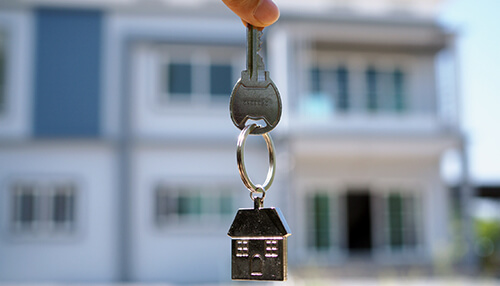Are you hoping to purchase your dream house within a year? Have you been eyeing a house in your neighborhood? Have you been looking at property prices lately? If you are, odds are you, as of now, have a rundown of things to search for in an optimal home. For example, the condition of the room, the kitchen size, the area, and the vicinity of a school, may most likely be the components in the rundown.
The rundown can be comprehensive. That is great, yet not anywhere near enough. Before you begin pondering everything, you must look at many other things, including your financial health and other social considerations. Here we lay them out to you in detail.
The dilemma of a homeowner
Homeownership can provide both tangible and intangible benefits. Evernest, Mynd and APM provide property rentals in Colorado Springs and ensure hassle-free and smooth services by helping you find a place faster and within your budget, whether for buying or renting. They use a data-driven and the most advanced approach.
Being a homeowner allows you to change the design, look, and layout to suit your temperament. As a homeowner, you feel a certain sense of pride and stability. While those are intangible benefits, there are tangible benefits regarding tax deductions.
The disadvantage of owning a house is that the real estate market may not be ripe enough when you decide to sell your house. So, you might have to go for a distress sale, which can cost you dearly. Moreover, there are transaction costs associated with home selling. All those can add up and cost you more than the purchase price.
Budgetary concerns
If you are bogged down by budgetary concerns, purchasing a house can be costlier and more time-consuming than renting due to the initial expenses involved, like down payment, closing costs, renovations, and moving costs. Even if it is affordable, the daily expenses of running a household can be considerable.
On the other hand, you can save eventually in the long term, but you might not be able to save short term. Moreover, some tax implications are linked with being a homeowner. However, once your mortgage is paid off, you can save significantly despite the renovation and maintenance costs.
Consider staying in a less expensive neighborhood. In this age of telecommuting, many people can work remotely. You can live in a cheaper area and get a far better and bigger house with far lower housing expenses than downtown. You will probably have a better quality of life than when you live in an upmarket area.
Stay duration
If you stay in the same house for at least five years without changing where you are domiciled, go ahead, and buy that house. It makes sense, especially if the house you are eyeing is apt for you. The most significant benefit about owning your house is that you can change the look to suit your personality.
However, if you have a big project requiring you to travel a bit, owning a house does not make sense, at least temporarily, until you are stable. Perhaps you are getting a promotion in your company and will be transferred to another state. In both these cases, buying a house is foolhardy.
Another idea is house hacking, which involves purchasing a multifamily property, renting the units, and occupying a unit. The rents can potentially cover the mortgage payment. It can also build your credit score and qualify you for a home loan when ready. Sometimes, it comes to working not harder but smarter.
Familial stability
Young couples who are just married are unsure whether to expand the family size right away or stay put for a couple of years. If you are indecisive about your familial stability, it is best to wait and see how it pans out. At this point, you do not even know the house size you want to purchase. And buying the wrong house is not an option either.
Renting gives you breathing space and enough time to make a joint decision with your spouse and extended family. Seek counsel from your parents, neighbors, or some elderly friends. In the interim, measure the property market and do some comparison shopping to find any good bargains.
FICO rating
The FICO rating is a three-digit mathematical rating that assesses your probability of reimbursing a credit. This financial assessment can make or break your capacity to get a home loan. It decides the loan fees you are equipped for to purchase your home. Learning your score gives you an idea of the bank debts.
A higher score flags that you are an okay customer, which suggests that you are bound to reimburse the obligations on time. Higher scores give loan specialists more certainty that you will satisfy your reimbursement commitments. With higher scores, you could get lower loan costs for your home loan.



